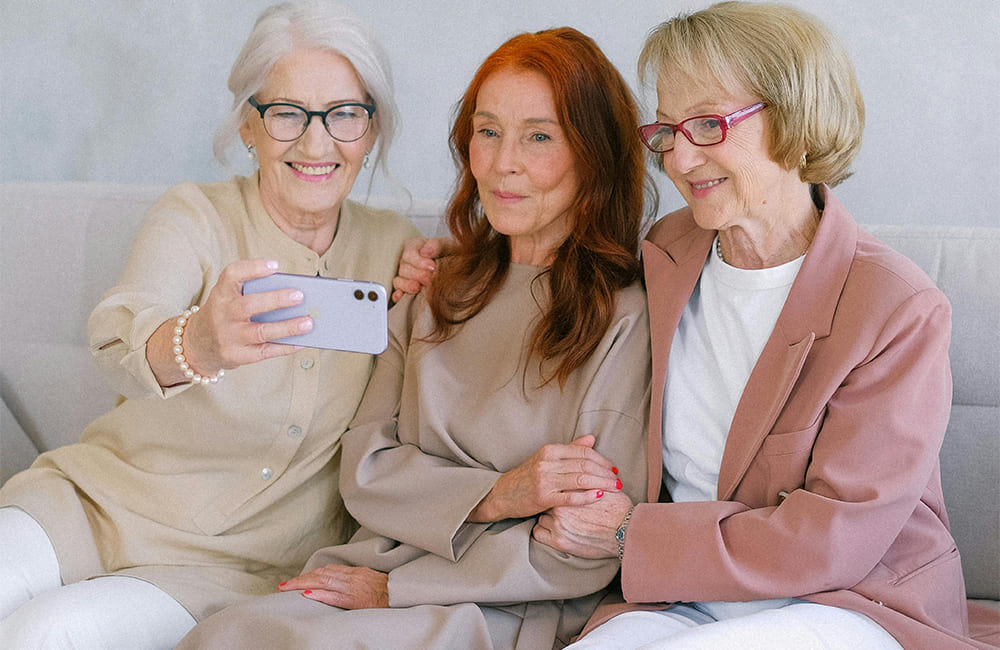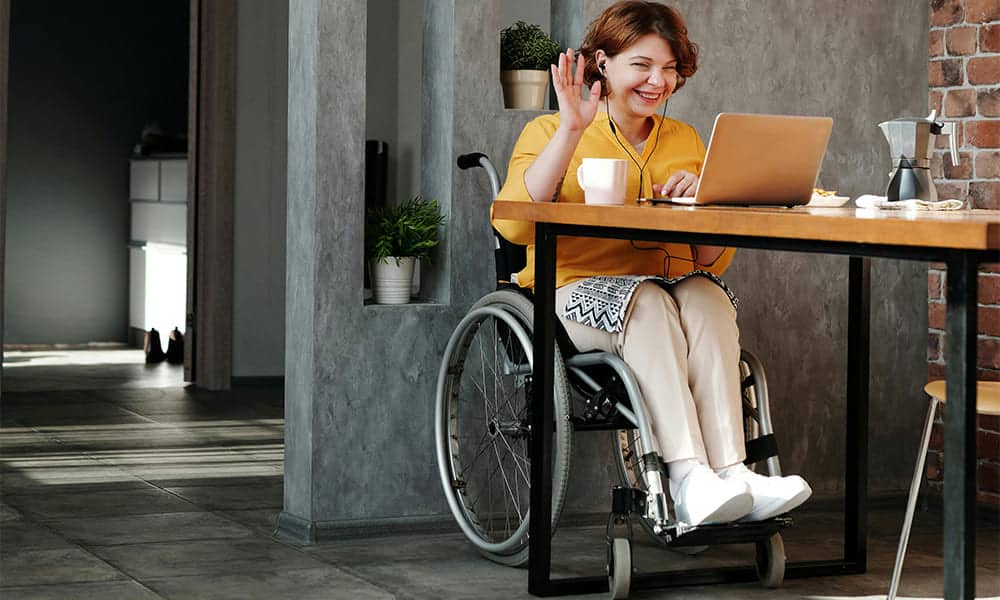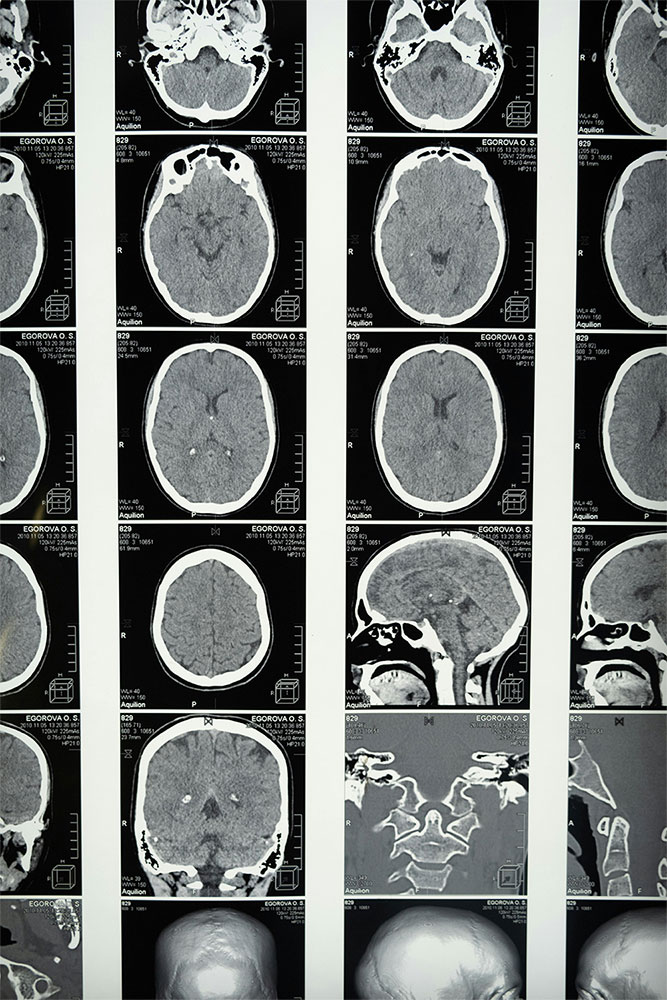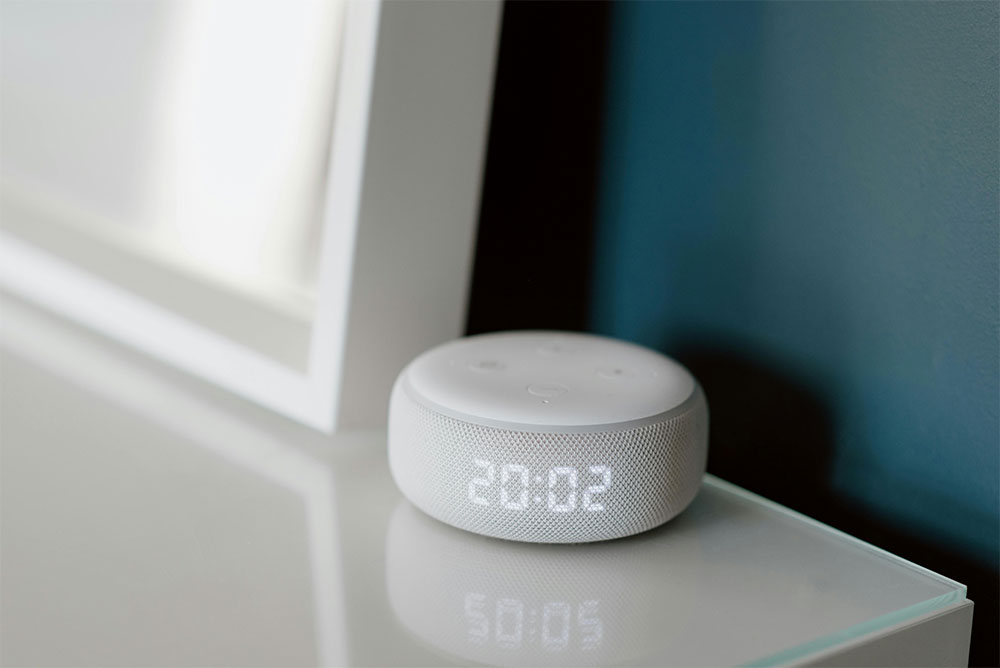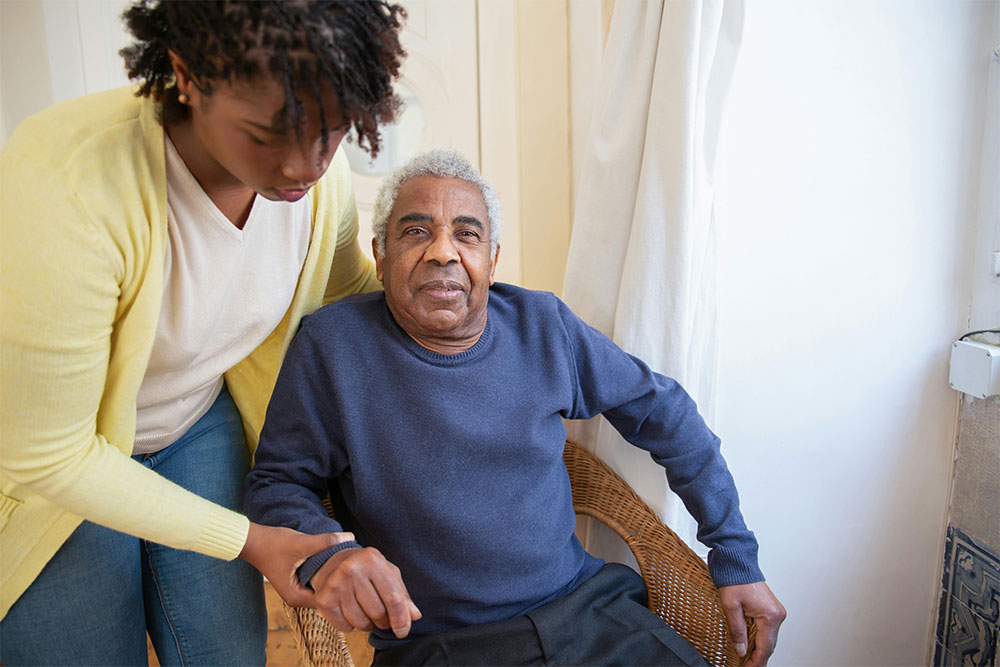
Christopher Ravn
Key Takeaways
1. While dementia is more common in older adults, it can occur in younger individuals, even as early as their 30s.
2. Early-onset dementia often presents with rapid cognitive decline, behavioral changes, and significant impact on daily life.
3. Timely diagnosis and management are critical to improving quality of life and providing support to those with early-onset dementia and their families.
Table of Contents
1. At What Age Does Dementia Start?
2. How Young Can You Get Dementia? Diving Into Dementia Onset By Decade
3. Can Dementia Start In Your 20s?
4. What Is Early-Onset Dementia?
5. How To Recognize The Warning Signs Of Early-onset Dementia
6. The Psychological Impact Of Early-onset Dementia
7. Young-Onset Alzheimer's And Recognizing Symptoms Before Age 65
8. Frequently Asked Questions About What Age Does Dementia Start
At What Age Does Dementia Start?
Dementia is a progressive neurological disorder that affects memory and behavior. Therefore, it is important to know at what age dementia starts. This group of symptoms is not a normal aspect of aging and may be due to a wide range of brain disorders.
However, this is seen to be most common for those over the age of 65 and has a risk of being more significant after the age of 85. The World Health Organization has stated that after age 65, dementia begins to become more aggressive every 5 years. The general consensus points out that at least 40% of those who are at the age of 85% suffer from dementia.
Dementia is a progressive neurological disorder that affects memory, thinking, and behavior. It is not a normal part of aging. It is not a single disease but rather a general term that encompasses a group of symptoms that can be caused by various underlying brain disorders.
Dementia is most common in people over the age of 65, with the risk increasing significantly after age 85. According to the World Health Organization, the prevalence of dementia doubles every 5 years after the age of 65, and by the age of 85, about 40% of people have dementia.
Let us look at some symptoms of dementia, which include memory loss, issues with communication, problem-solving issues, changes in mood and personality, and difficulty completing or participating in daily activities.
The accumulation of beta-amyloid plaques and tau tangles in the brain is what causes the most prevalent type of dementia. Hence, the most common types of dementia are vascular dementia, frontotemporal dementia (FTD), Lewy body dementia, and mixed dementia.
How Young Can You Get Dementia? Diving Into Dementia Onset By Decade
- 20s–30s: It is very rare to have dementia at this age, with a percentile of 1%.
- 40s: It is still rare to get dementia at this age with a percentile of 2–3%.
- 50s: It is common to have dementia at this age with a percentile of 10–15%. This could be Alzheimer’s, frontotemporal dementia (FTD), or other types of neurodegenerative disorders.
- 60s: Dementia is most common at this age, with a percentile of 2–3%.
- 70s and older: Dementia is most common in this group because there are a range of types of dementia.
Alzheimer’s Research UK has stated that people who are younger than 65 and suffer from dementia are known as ‘younger people with dementia’ or young-onset dementia. FTD is the most common in those between the ages of 50 and 60 and is seen in 12 out of every 100 cases of young-onset dementia.
Onset Dementia In Your 30s
- Genetic reasons, such as familial Alzheimer’s disease. If you have CADASIL, a rare disorder that affects the brain’s blood vessels, you may show signs of white matter and plaque buildup in your brain.
- Rare genetic disorders that have the possibility of causing dementia, such as Huntington’s disease and Parkinson’s disease,.
- Infections like HIV or Lyme disease.
- Severe head injury.

Onset Dementia In Your 40s
Common symptoms of dementia in your 40s are memory loss and difficulty concentrating. Issues with spatial orientation, confusion, being unable to recognize landmarks, memory issues, mood and personality changes, and issues conducting daily tasks.
They differ from other age groups by showing fast-progressive symptoms compared to those who have older-onset dementia, which is 60 years and older. Younger-onset dementia impacts their daily lives, causing them to be unemployed, raise a family, or even have financial stability.
Possible causes are genetic Alzheimer’s disease, poor heart health, Down syndrome, hormone deficiencies, depression, infections, and brain tumors. The risk factors are family history of the disease, lack of physical activity, smoking, and infections.
Onset Dementia In Your 50s
There is a rise in the number of people suffering from Dementia and there is a rise in prevalence, which is caused by lifestyle choices, genetic predisposition, and environmental influences.
Their reason for the rise is due to smoking, physical inactivity, excess weight, alcohol consumption, and genetic predisposition which is linked with family history, and toxins, head injuries can also contribute to the development of dementia.
Early intervention strategies include physical activity, maintaining a healthy weight, avoiding alcohol and smoking, working with genetic predispositions through regular cognitive assessment and screening, using medications and therapies such as cholinesterase inhibitors, having the support of family, friends, and healthcare professionals, educating oneself about dementia and understanding the causes of dementia in your 50s, and working on early intervention to reduce the risk of developing it.
Can Dementia Start In Your 20s?
Though not the only factor, genetics can play a huge role, and lifestyle and environmental factors may also exacerbate the condition.
There are a few risk factors that are connected with dementia, such as the
APOE gene, which is widely associated with Alzheimer’s. This is the main trigger for dementia. It is a gene that is known to help balance cholesterol in the brain. There are a few variations of the gene that are linked to an increase in Alzheimer’s.
There have been a few risk factors related to other genetic variants for dementia, such as TREM2, ABCA7, and CR1.
As mentioned, environmental factors also play a role in the development of dementia, such as lack of exercise, smoking, an unhealthy diet, brain injuries or concussions, meningitis, pesticides, or heavy metals.
What Is Early-Onset Dementia?
Early-onset dementia is also known as young-onset dementia. It is prevalent in those who are under the age of dementia and is not the same as the dementia cases seen in older adults.
Early-onset dementia differs from age-related cases in a few ways, such as occurring in those younger than 65. In contrast to showing signs of memory loss, it is a result of genetic mutations, infections, and environmental toxins and has symptoms like changes in behavior or personality. It also progresses faster than normal age-related dementia.
Early-onset dementia differs from age-related cases in a few ways, such as occurring in those younger than 65. In contrast to showing signs of memory loss, it is a result of genetic mutations, infections, and environmental toxins and has symptoms like changes in behavior or personality. It also progresses faster than normal age-related dementia, which may affect someone’s career or even social relationships.
Rarity And Causes Of Early-Onset Dementia
As stated, early-onset dementia affects people under the age of 65. The World Health Organization (WHO) states that about 9% of dementia cases are young-onset dementia.
Though it is common that Alzheimer’s disease is common in older patients, it is not the primary cause of early-onset dementia. Instead, younger people may suffer from FTD, vascular dementia, Lewy body dementia, and Huntington’s disease.
Other factors, such as a family’s medical history, people with Down syndrome, poor heart health, and severe and traumatic brain injuries, may increase the risk of developing dementia.
Early-Onset Dementia Symptoms And Challenges
- Having issues remembering certain events, and conversations, and learning new skills.
- Unable to follow through with conversations or understand words or writings.
- Difficulty making decisions or solving problems.
- Issues like depression, anxiety, or apathy.
- Being disoriented on familiar grounds.
- Unable to read, write, or speak.
- Unable to perform daily tasks
- Unable to tell the difference between normal age-related cognitive decline and early-onset dementia.
- Not knowing what early-onset dementia looks like.
- Limitations in diagnostic tests and tools.
We Believe Prioritizing Brain Health Enhances Your Quality Of Life
Get to know our team, our mission and how our EVY LIGHT® can provide you and your loved ones with a fuller life, letting you breathe a little easier.
How To Recognize The Warning Signs Of Early-onset Dementia
- Struggling with tasks that were once deemed easy.
- Unable to find the right words or remember dates.
- Feeling irritable or anxious.
- Sudden personality changes make the person withdrawn, suspicious, or aggressive.
- Staying away or showing a lack of interest in something that a person once enjoyed.
- Find a private and quiet setting where they will feel comfortable.
- Convey your observations regarding certain behaviors or incidents that may have worried you.
- Use specific “I” statements to share your feelings.
- Listen actively to your loved ones without judging or interrupting.
- Do not focus on the future or make any assumptions about their diagnosis.
- Suggest that your loved ones visit a doctor.
- Provide support and offer to help with daily tasks.
The Psychological Impact Of Early-onset Dementia
The psychological impact of early-onset dementia is most often complex, as it affects not only the person struggling with it but also their loved ones and caregivers. Those with early-onset dementia may experience changes in responses, which include overreacting, sudden changes in mood, feeling irritable, and showing signs of being distant or disinterested.
Caregivers of individuals with early-onset dementia may experience a range of emotions, which include stress, grief, guilt, poor emotional well-being, impotence, frustration, sadness, depression, feeling lonely or the sense of being robbed of their future, and anger. Therefore, it is good to do sensory activities for dementia patients.
Mental Health Challenges
Support Systems and Counseling
Support systems and counseling are important when it comes to managing the psychological impact of those with early-onset dementia. Receiving a strong emotional, practical, and sense of connection, can help relieve signs of depression and anxiety.
The importance of support systems is to help those with dementia feel less isolated, reduce burden and stress, and provide a sense of connection and belonging. Counseling can provide assistance in coping with emotional and psychological challenges that are linked with the diagnosis, such as cognitive-behavioral therapy (CBT) that helps to deal with negative thought patterns and behavior, psychodynamic therapy that allows dementia patients to process their emotions and work through the impact, and support groups that are a safe and supportive environment to share experiences and connect with other similar patients. Some may also try music therapy for dementia and light therapy for dementia.
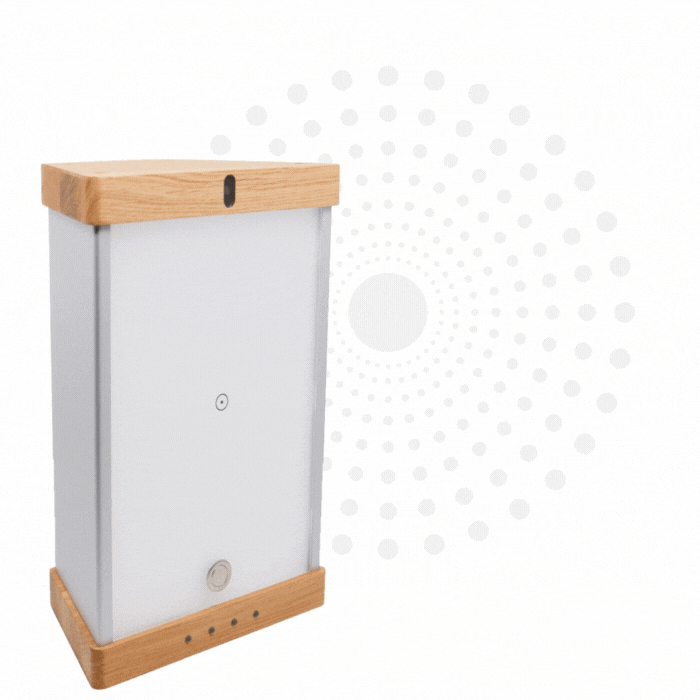
Enhance your brain performance through the power of light.
Comfortable and easy to use 40Hz light therapy to support and improve your brain function.
View Our LightYoung-Onset Alzheimer's And Recognizing Symptoms Before Age 65
It is important to recognize symptoms before the age of 65 and it is important to go for a thorough evaluation such as physical and cognitive tests and one’s medical history. There is currently no cure for young-onset Alzheimer’s. However, there are medications and management practices that can help the progression and quality of life. There are medications, like cholinesterase inhibitors and memantine, that help manage the symptoms. Living with those with young-onset dementia can pose an issue, but there are so many resources out there, such as educational material, support groups, and professional counseling.
Symptoms And Early Indicators Of Young-Onset Alzheimer’s
There are some distinct symptoms that are different from late-onset Alzheimer’s, such as the age difference of onset, a strong family history of the genetic mutation, rapid language, a decline in cognitive function such as memory and language, and changes in behavior such as depression, aggression, and sleep disturbances.
Diagnostic Processes And Treatments For Young-Onset Alzheimer's
Young-onset Alzheimer’s can be diagnosed using neurophysical tests that access memory, attention, and language, imaging tests such as MRI or CT scans,
The diagnostic process typically begins with a thorough medical history and physical examination to identify any underlying medical conditions that could be contributing to the symptoms. The healthcare provider may also perform cognitive and neuropsychological tests to assess memory, thinking, and problem-solving abilities, a lumbar puncture that helps collect cerebrospinal fluid, and identify genetic mutations.
Though there are no current treatments for young-onset Alzheimer’s, there are a few ways to manage and slow down the progression, such as cognitive training programs such as brain exercise to prevent Alzheimer’s, changes in lifestyle such as stress management and social engagement, and support and therapy that provide counseling and support.
View The Video Testimonials Of What Others Have Experienced
See how others have achieved a sharper mind by activating their gamma brainwaves in combination with maintaining a healthy lifestyle.
Frequently Asked Questions About What Age Does Dementia Start
What Is The Age That Dementia Typically Starts?
However, this is seen to be most common for those over the age of 65 and has a risk of being more significant after the age of 85. The World Health Organization has stated that after age 65, dementia begins to become more aggressive every 5 years. The general consensus points out that at least 40% of those who are at the age of 85% suffer from dementia.
What Is The Youngest Age For Dementia Diagnosis?
While dementia is more common in older adults, it can occur in younger individuals, even as early as their 30s.















